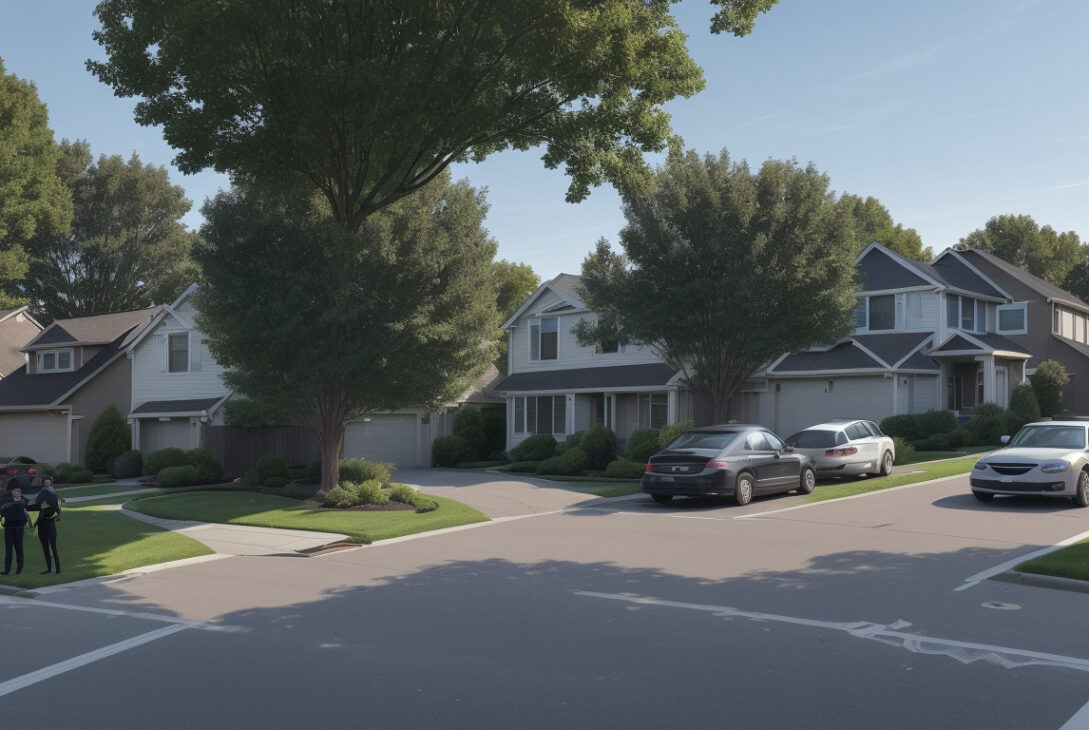HOA or Big Brother? Suncoast Neighborhoods Use Controversial Technology to Fine Speeders
By Josh Salman and Aaron Mammah
Published: August 11, 2025, 7:00 AM EDT
SARASOTA, Fla. (Suncoast Searchlight) – A vehicle cruising at 39 mph in the quiet Laurel Oak Estates and Country Club neighborhood recently led to an unexpected consequence—a speeding fine issued not by police but by the homeowners’ association (HOA) itself. This incident highlights a rising trend among private communities on Florida’s Suncoast: using advanced surveillance technology to monitor and penalize driving infractions within their borders.
Private Neighborhoods Take on Speed Enforcement
Laurel Oak Estates, a 406-home luxury community nestled off Bee Ridge Road in Sarasota County, has adopted a controversial approach to traffic safety through automated license plate readers (ALPRs) and speed-detecting cameras. These devices automatically capture speeding vehicles, issuing fines directly to violators regardless of residency status—meaning both residents and visitors passing through are subject to penalties.
The HOA’s citation process mimics official speeding tickets, including a $125 fine for exceeding the 25 mph speed limit. Letters inform recipients of the violation and outline the potential increase in fines to $200 for speeds exceeding 41 mph. However, unlike government-issued citations, failures to pay the HOA fine do not lead to points on a driver’s record or affect insurance rates. Instead, the HOA may take civil actions such as restricting access to the neighborhood or placing liens on property for resident violators.
Legal Boundaries and Privacy Concerns
Florida law (Statute 720.305) limits HOA fines to $100 per violation with provisions for higher penalties for continuing offenses. Laurel Oak’s escalated fees raise questions about adherence to these caps. The HOA must provide a 14-day notice and offer a hearing before a neutral board committee to adjudicate disputes, ensuring some procedural fairness.
Despite the HOA’s enforcement initiatives, the Sarasota County Sheriff’s Office clarified that speeding enforcement on private roads falls outside law enforcement jurisdiction, describing it as a civil matter between vehicle owners and the HOA.
This transfer of traffic enforcement powers to private entities has ignited concerns from privacy advocates. Adam Schwartz, Privacy Litigation Director at the Electronic Frontier Foundation, described the situation as a “Wild West” scenario where vast amounts of personal data regarding individuals’ movements fall into the hands of private companies without adequate oversight. “Knowing where someone has been reveals much about them—from movie outings to protests or attending a gun show,” Schwartz remarked.
HOA attorney Scott Petersen recognizes the liability concerns driving these measures. “If a car speeds and causes injury, the HOA could be held responsible if it didn’t take action,” Petersen said. Yet he acknowledges the cloud of uncertainty over data use and privacy, even within his own HOA which utilizes similar plate-tracking technology.
The Surge of Surveillance Technology in Private Communities
Companies like Flock Safety and Traffic Logix lead the development and marketing of speed cameras and ALPRs tailored for HOAs and gated communities. Traffic Logix promotes its Guardian speed cameras with programs boasting up to a 91% reduction in community speeding within three months, touting both safety benefits and revenue generation prospects for HOAs.
With more than 5,000 communities nationwide utilizing Flock Safety’s solutions—over 40% comprised of HOAs—and more than 400 HOAs leasing Traffic Logix cameras for amounts under $400 monthly, the technology is becoming a fixture in private neighborhood security arsenals.
Local Florida neighborhoods beyond Laurel Oak have adopted similar technology. The Landings community in Sarasota and the Rosedale neighborhood in Manatee County have implemented enforcement programs, while Country Club Harbour near Panama City and Gran Lake HOA in St. Augustine are among others leveraging cameras to combat speeding and vandalism.
Community Reactions and Future Implications
While many residents appreciate the increased safety, questions persist about the implications of these surveillance systems for privacy, data handling, and the potential overreach by private organizations acting like law enforcement. The lack of detailed regulation or public transparency adds to unease among privacy advocates and community members.
Representatives of Laurel Oak Estates declined to comment on the initiative, and companies behind the surveillance technologies have yet to respond to inquiries.
Conclusion
As private HOAs increasingly assume roles traditionally held by law enforcement, balancing safety, privacy, and legal authority remains a pressing challenge. The growing reliance on automated surveillance to impose civil penalties in residential neighborhoods highlights a new frontier in community governance—and sparks important conversations about the boundaries of private security in America.
For more updates on this and other local news, keep following Suncoast Searchlight.
© 2025 Suncoast Searchlight. All rights reserved.










